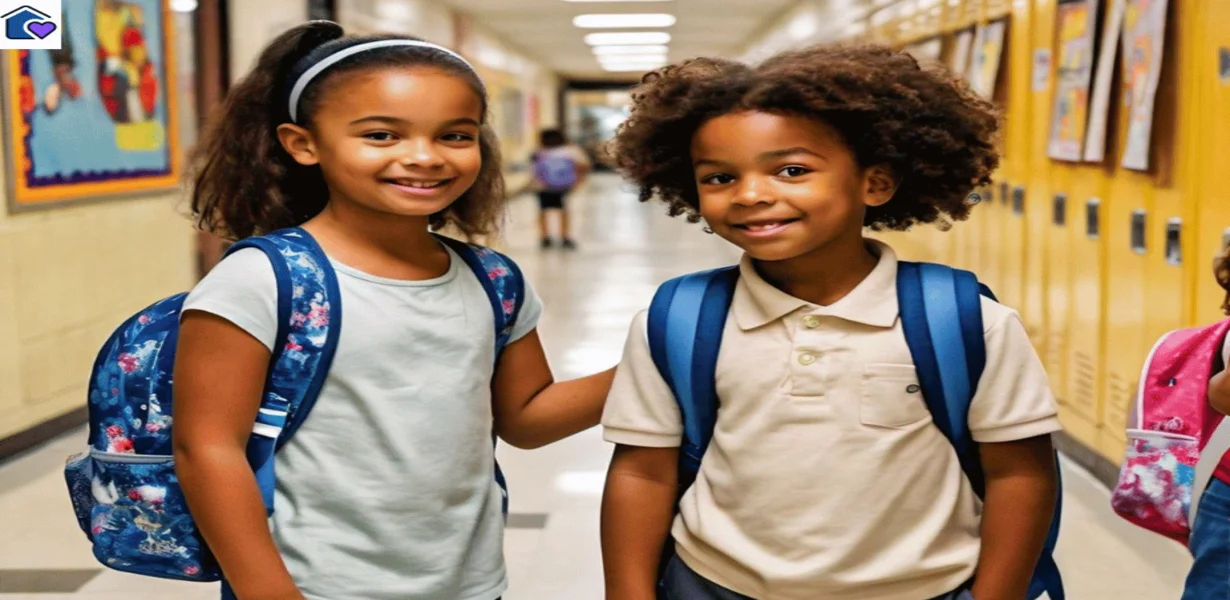Building Friendships: Revealing 11 Step Guide to Helping Your Child Make Lasting Connections
Discover effective strategies and practical tips for parents to help their children make friends at school. From fostering social skills and building confidence to encouraging positive interactions and addressing challenges, this article provides comprehensive guidance to support your child’s social development and enhance their school experience.
Friendship is a critical aspect of childhood expansion, impacting social skills, emotional well-being, and overall joy. As a parent, you play an essential role in supporting your child’s journey towards forming expressive friendships. While making friends can come naturally to some children, others may need leadership and help. Here’s a complete guide on how you can help your child circumnavigate the social landscape of school and foster permanent friendships.
Understanding the Importance of Building Friendships
Before delving into plans, it’s essential to recognize why friendships matter:
Social Skills
: Friends teach children understanding, communication, and cooperation.
Emotional Support
Friends provide comfort and companionship during puzzling times.
Confidence Boost
Positive alliances enhance self-esteem and a sense of belonging
Starting with a Positive Mindset while Building Friendships
As a parent, your attitude towards your child’s social interactions can significantly influence their view. Here’s how you can foster a positive mind:
Encouragement:
Celebrate their efforts in socializing, regardless of outcomes.
Patience:
Understand that forming friendships takes time and varies for every child.
Role Model:
Demonstrate healthy social behaviors in your connections.
Developing Social Skills while Building Friendships

Building strong friendships begins with emerging critical social skills:
Communication:
Practice active listening and discussion starters.
Empathy:
Guide your child to understand others’ feelings and viewpoints.
Assertiveness:
Motivate them to express their desires and views respectfully.
Simplifying Social Opportunities
Create environments that encourage social communication:
Playdates:
Arrange play dates with classmates or neighbors to adoptive understanding.
Extracurricular Activities:
Encourage contribution to game clubs, sports, or hobbies aligned with their interests.
Community Events:
Attend school gatherings, fairs, or local functions where children can socialize.
Encouraging Positive Interactions while your child is Building Friendships
Help your child navigate social interactions effectively:
Teach Friendship Skills:
Role-play developments and discuss suitable activities.
Conflict Resolution:
Guide them in resolving conflicts peacefully and understanding differences.
Kindness and Inclusion:
Highlight the importance of inclusivity and sympathy towards aristocracies.
Building Confidence while Your Child is Trying to Building Friendships
Confidence is a key to beginning and upholding friendships:
Praise Efforts:
Recognize their attempts to socialize and step out of their comfort zone.
Identify Strengths:
Help them identify their unique qualities and strengths.
Set Realistic Goals:
Encourage small, achievable social goals to build self-confidence progressively.
Addressing Challenges while Building Friendships
Be aware of potential challenges your child may face:
Shyness:
Support them in overcoming shyness through regular exposure and positive strengthening.
Harassment:
Teach tactics to handle harassment and encourage them to seek help from reliable adults.
Rejection:
Validate their feelings and provide reassurance that friendship dynamics can change over time.
Strengthening Parent-Child Communication

Maintain open communication to understand your child’s social experiences:
Listen Actively:
Create a safe atmosphere for them to share their feelings and worries.
Provide Guidance:
Offer gentle guidance based on their experiences without impressive solutions.
Celebrate Successes:
Acknowledge milestones in their social journey and celebrate their friendships.
Collaborating with Teachers and Schools while building Friendships
Engage with teachers and school staff to support your child’s social progress:
Partnership:
Share visions of your child’s social strengths and tasks.
Support Networks:
Explore school-based programs or counseling services that promote social skills.
Feedback Loop:
Stay up-to-date about their social relations at school and collaborate on strategies for development.
Embracing Diversity and Inclusion while Building Friendships
Encourage your child to escalate variety and form friendships across different families:
Cultural Awareness:
Discuss the value of cultural diversity and respect for varying traditions.
Inclusive Play:
Foster atmospheres where all children feel welcome and included.
Lead by Example:
Reveal comprehensive behaviors and celebrate diversity in your family’s interactions.
Patience and Persistence are the keys to Building Friendships
Lastly, remember that building friendships is a journey:
Time and Effort:
Be patient as your child navigates the ups and downs of socializing.
Adaptability:
Adjust strategies based on your child’s evolving social needs and familiarities.
Celebration:
Celebrate each step towards forming meaningful friendships, regardless of the outcome.
Conclusion
In conclusion, helping your child make friends at school requires patience, motivation, and a supportive approach. By nurturing their social skills, fostering positive interactions, and maintaining open communication, you empower your child to navigate the difficulties of social relationships confidently. Remember, every child is unique, and their path to founding friendships will unfold at their own pace. With your guidance and support, they will build lasting associates that enrich their childhood and beyond.

More articles you can read
There are some more articles based on different topics regarding to family members, if you want to read then visit here, and for more to read about your self-care, you can visit here.
